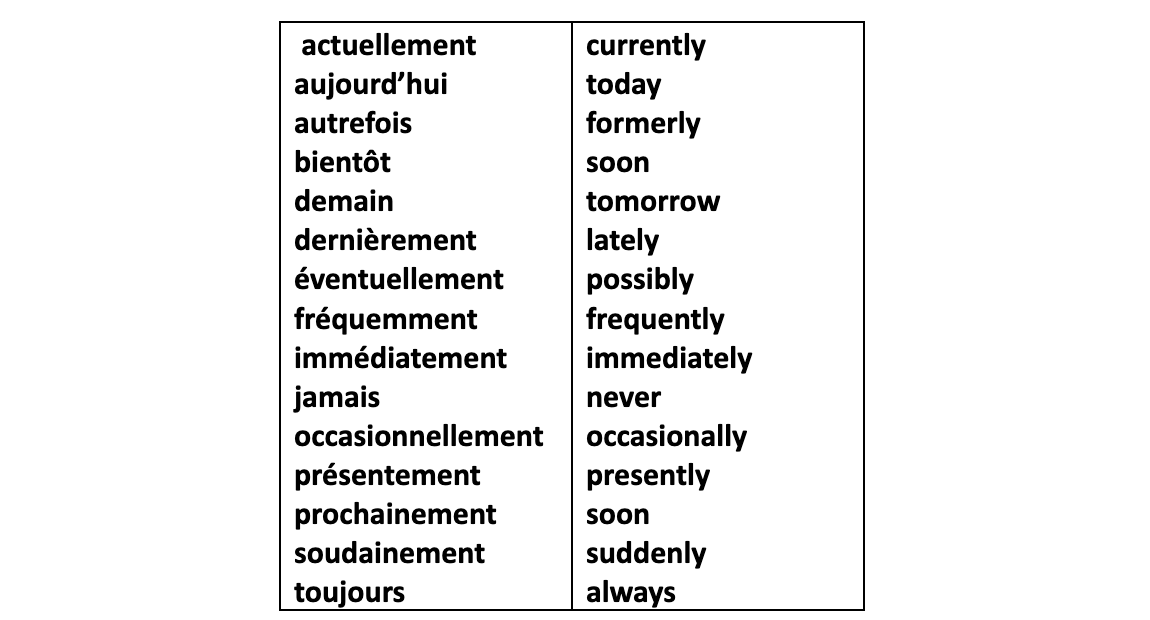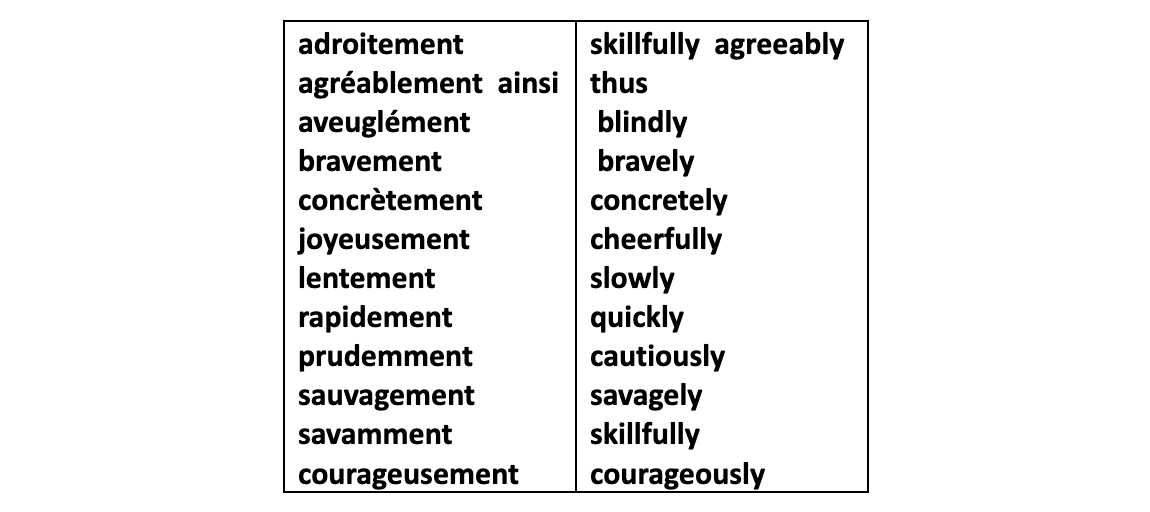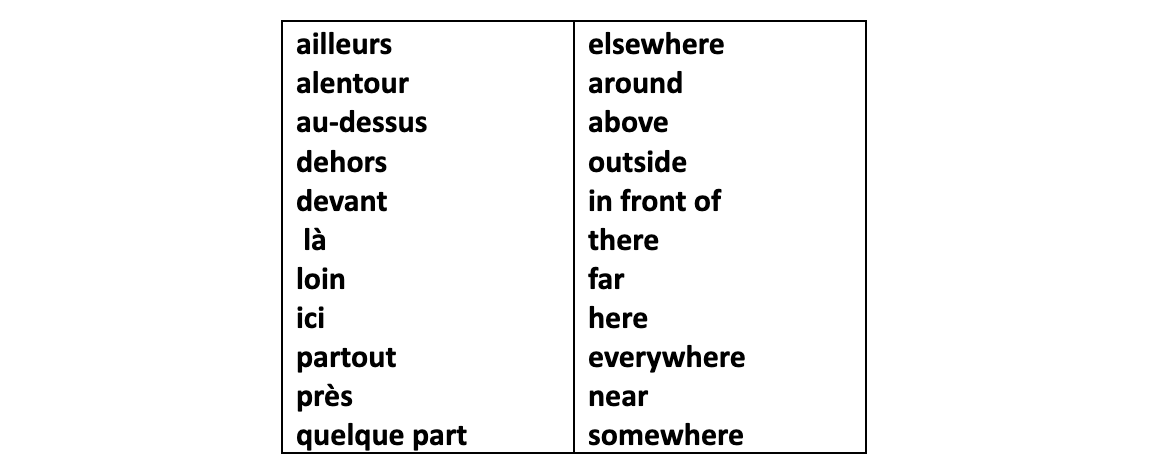Just like English, the French language is composed of words that must be combined obeying grammatical rules to express ideas and convey thoughts. The French words are classified into nine categories similar to those of the English language : (nom , pronom , déterminant (article) , verbe , adverbe ; préposition , conjonction , adjectif , interjection).
In this article, the focus is to be done on « les adverbes ».
An adverb, like any other word, has a form (the letters it is composed of) and a meaning (what it signifies). In French, the adverb is generally unchangeable. Its main function is to give an extra piece of information. Compared to adverbs in English, French adverbs express more details since they have different types and numerous classes. So , in French grammar , we can find adverbs of : Temps (time) , manière (manner) , lieu (place) , quantité (quantity) , affirmation (certainty) , , négation (negation) , interrogation (interrogative) , intensité (degree) , doute (doubt) , probabilité (possibility) , conséquece (consequence).
Here are examples of adverbs classified according to what they express.
1.Temps :

2.Manière :
a) Comment (How) :

b) Dans quel ordre (order) :

3. Lieu :

4. Affirmation :

5.Négation :

6.Intensité :

7.quantité :

8.Probabilité :

9.Conséquence :

Most of the adverbs in the French language modify a verb, an adjective, another adverb, or even a whole sentence.
Here are some examples to illustrate that :
1.Julien joue sagement. (the adverb « sagement » modifies the verb « joue »).
2.Julien joue bien sagement. (the adverb « bien » modifies the other adverb « sagement ».
3.Bernadette est très mignonne. (the adverb « très » modifies the adjective « mignonne »).
4.Bruno est très souvent en colère. (the adverb très modifies the other adverb « souvent »).
5.Evidemment ,Jeanne est la plus intelligente de ses camarades de classe. (the adverb « évidemment » modifies the whole sentence).
To summarize that, here are some more examples :
The adverb modifies :
1.A verb : Jeanne comprend vite.
2.An adjective : Le gâteau est très chaud.
Des enfants particulièrement heureux.
3.Another adverb : Vous serez bien mieux ainsi.
4 :A whole sentence : Décidément , vous n’avez pas de chance avec cette voiture.
Remark: Some adjectives in French are used as adverbs. In general, they do not change in gender or in number ( ne s’accordent pas) if they modify a verb. But if they modify another adjective, they do change ( ils s’accordent).
Examples :
1.Pour entretenir correctement votre pelouse tondez-la ras. (here the adjective « ras » modifies the verb « tondez » so no change).
2.Jean avait laissé les portes grandes ouvertes avant de partir. (In this sentence , the adjective « grandes » modifies the other adjective « ouvertes » , so it changes taking the plural form (il s’accorde).
Formation of adverbs :
1. Some adverbs are unchangeable in one word.
Examples : hier , souvent , peu , jamais , très , demain , beaucoup….
2. Adverbs derived from adjectives are generally formed with the feminine of the adjective, adding to it the suffix « ment ».
Examples :
-Naif naive naivement
-Grand grande grandement
-Judicieux judicieuse judicieusement
-Réel réelle réellement
Here are some particular cases.
When an adjective ends in « e, é, i, or u, », we just add the suffix « ment » to make the adverb.
Examples :
Autre / autrement passionné / passionnément poli/ poliment
Absolu / absolument.
When a masculine adjective ends in « ant », we replace it by « amment » to make the adverb.
Examples :
Abondant / abondamment suffisant / suffisamment puissant /puissamment
And when the masculine adjective ends in « ent », we replace it by « emment » to make the adverb.
Examples :
Evident / évidemment pertinent / pertinemment innocent / innocemment.
BONNE LECTURE







